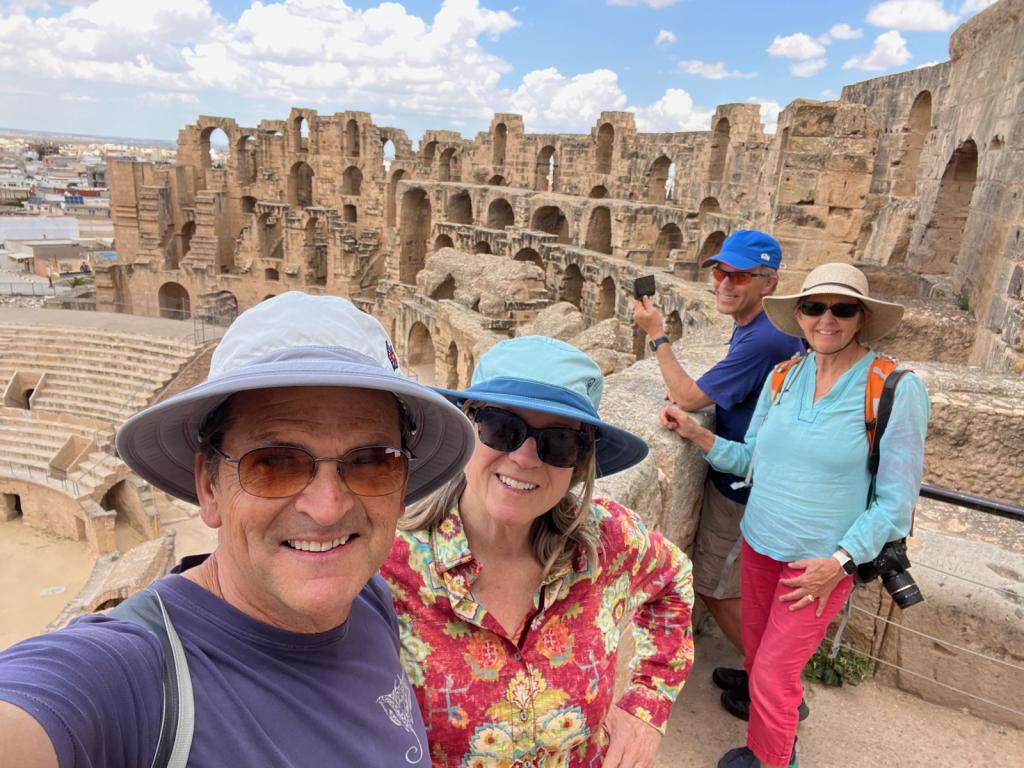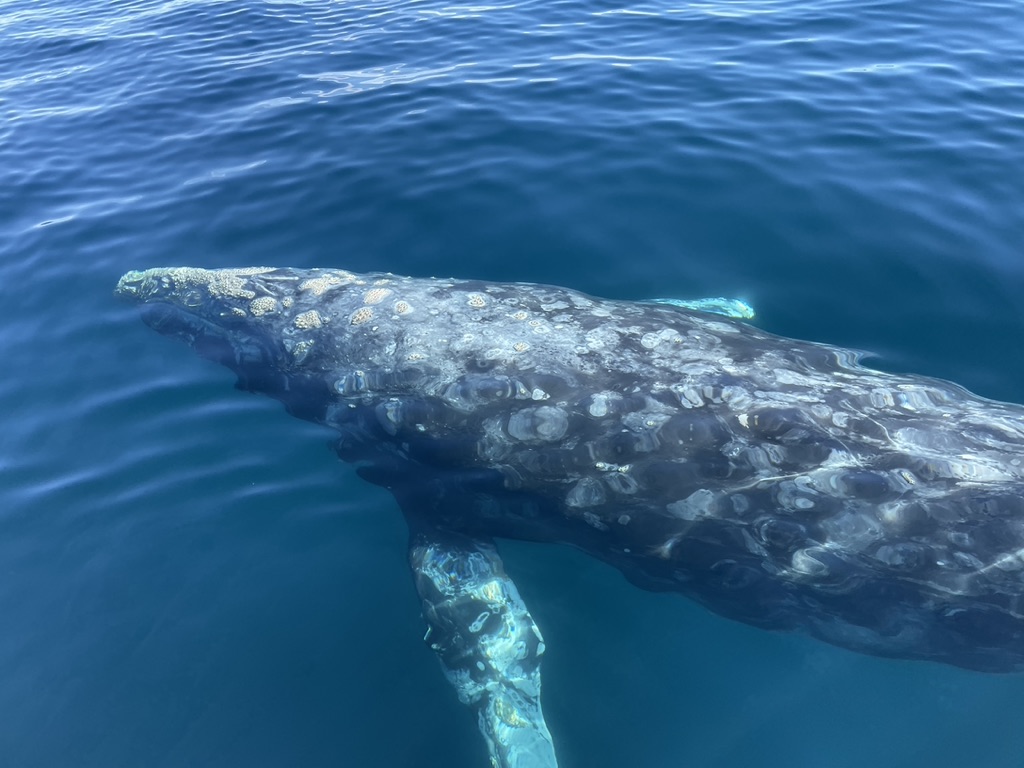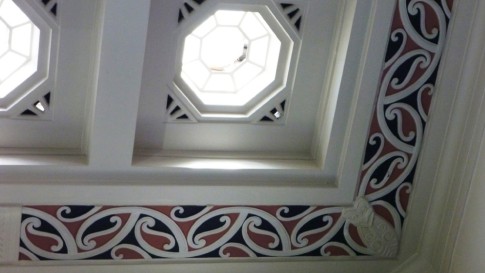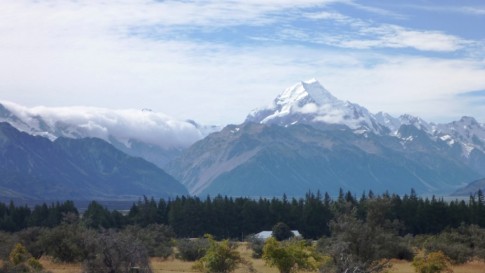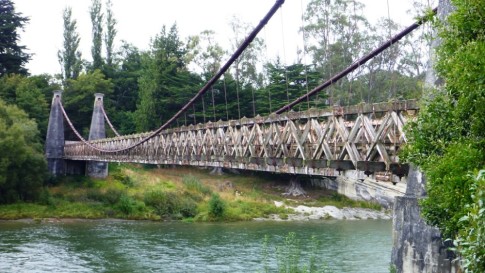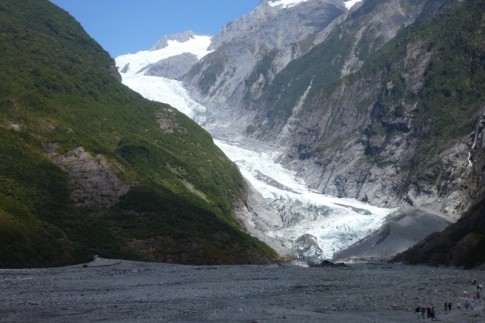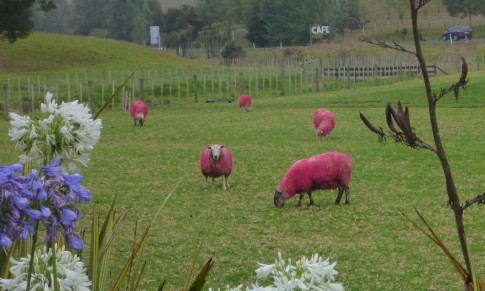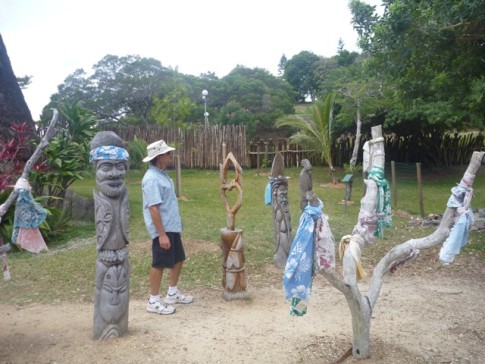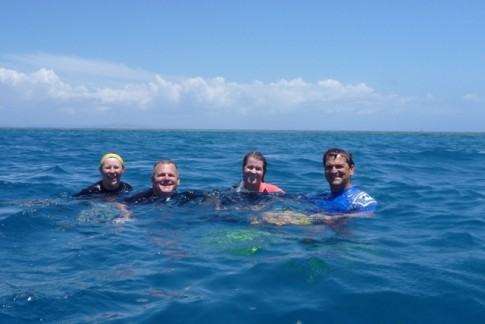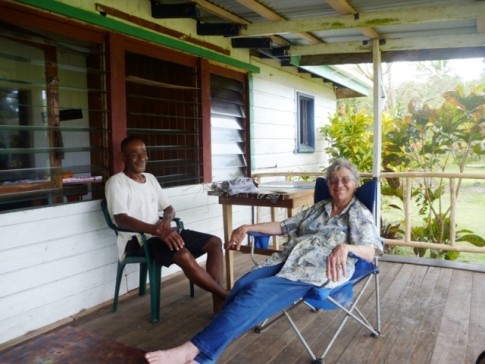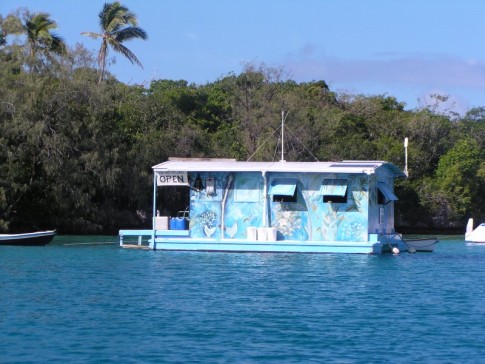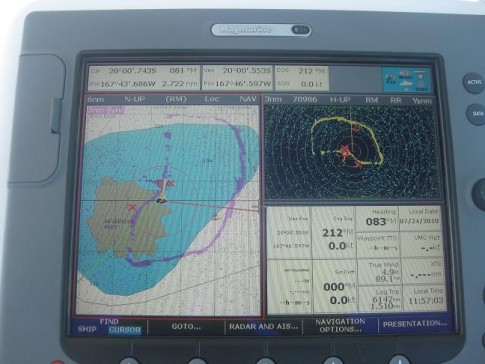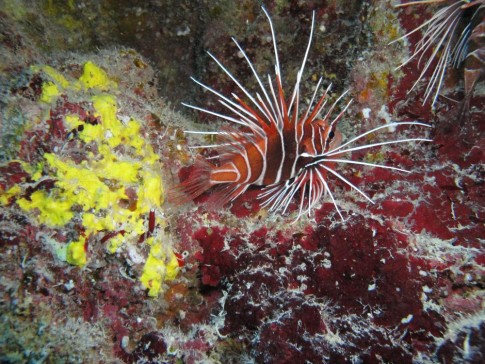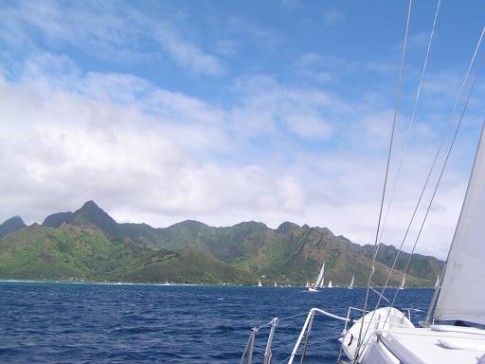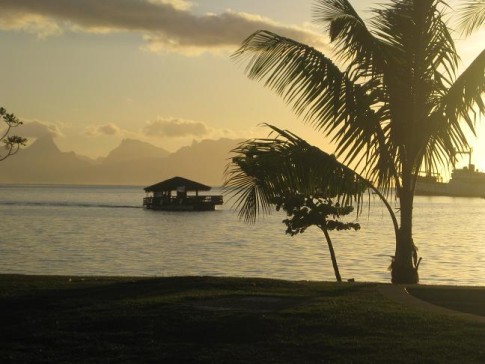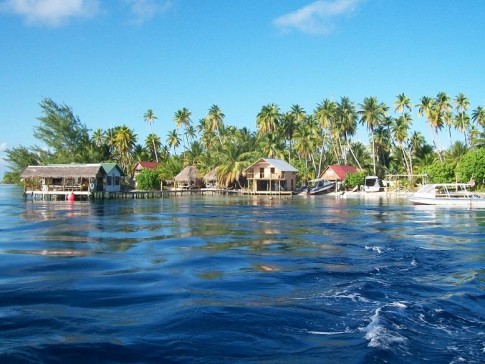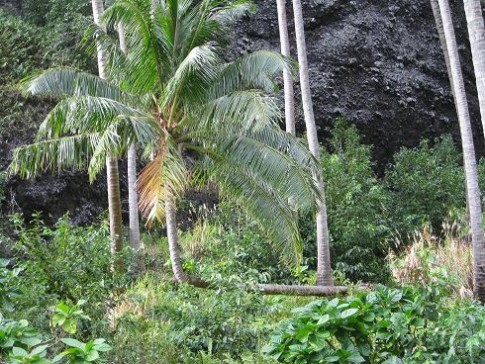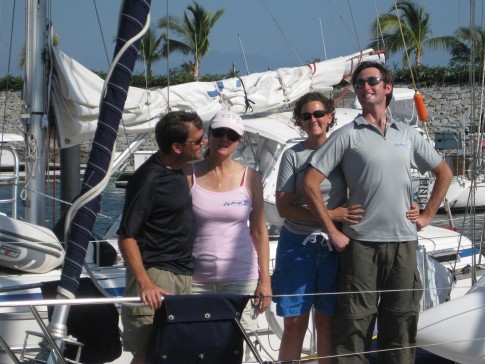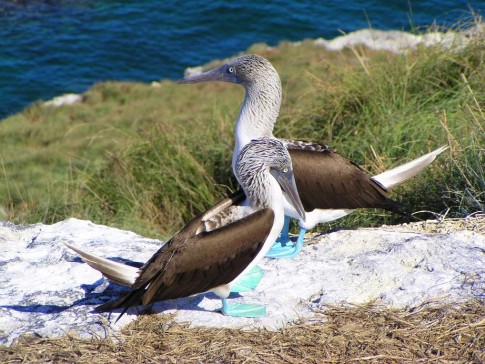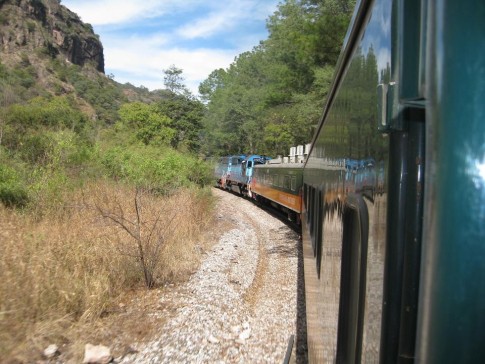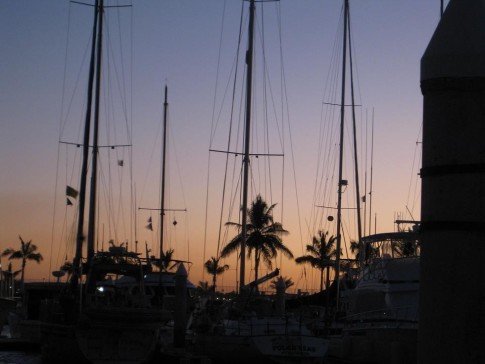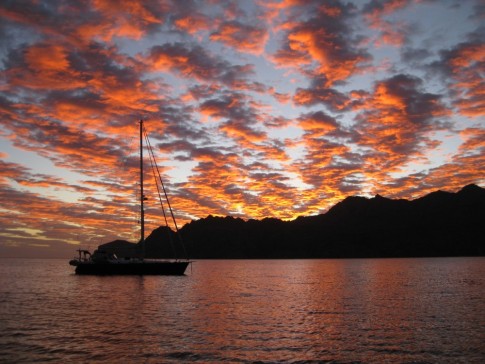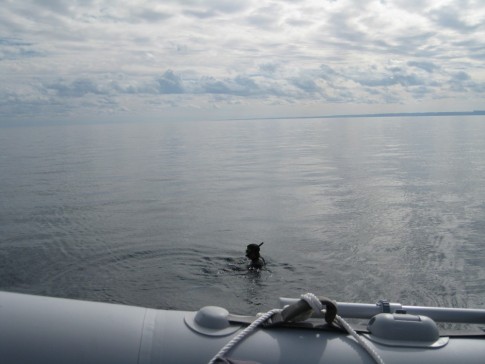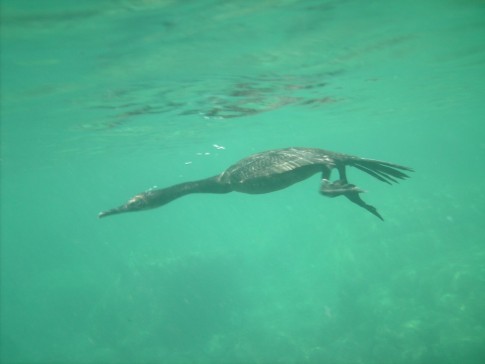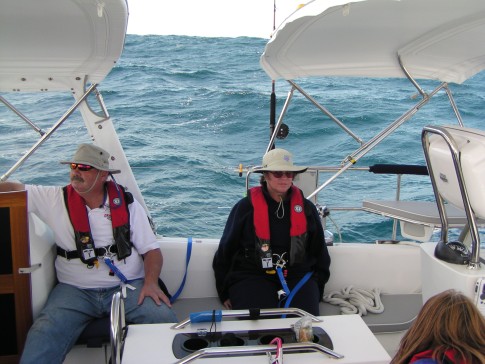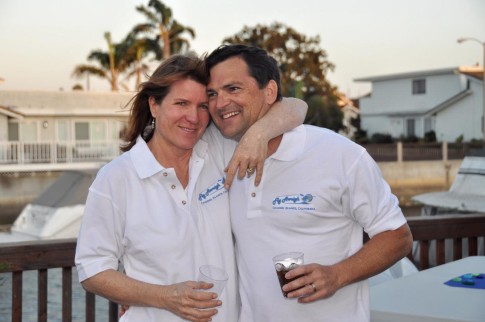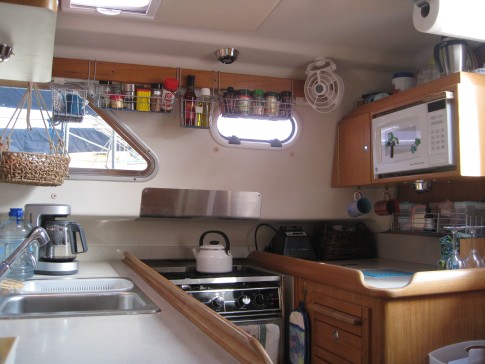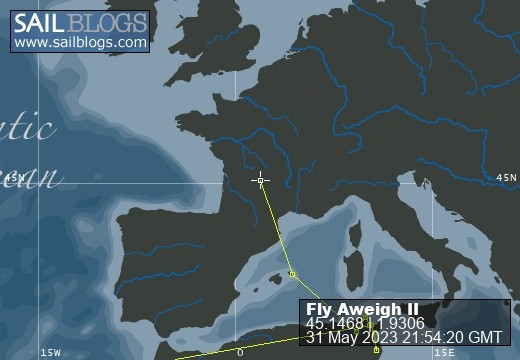
The Further Adventures of Fly Aweigh (II)
Back on a boat after a 10-year working break, we're off on another adventure! This time, with two hulls, no timeline, and no particular agenda. And sometimes, I’ll use this forum for non-sailing adventures.
31 May 2023 | France
24 May 2023 | Tunis Medina, Tunisia
20 May 2023 | Bizerte, Tunisia
18 May 2023 | Carthage
16 May 2023 | Tunis, Tunisia
14 May 2023 | Tunis, Tunisia
05 February 2023 | Barra de Navidad, Mexico
31 January 2023 | Tenacatita, Mexico
29 January 2023 | Ipala, Mexico
14 January 2023
26 August 2022 | Petaluma, CA
19 August 2022 | Edgartown, Martha's Vineyard
12 August 2022 | Beverly, Massachusetts
04 August 2022 | Madison, WI
23 July 2022 | Somewhere in the US
01 July 2022 | Channel Islands Harbor
19 June 2022 | Marina Coral, Ensenada
08 June 2022 | Cabo San Lucas, Baja California, México
04 June 2022 | Los Gatos, Sea of Cortez
24 May 2022 | Santa Rosalia, Baja California Sur, México
Livaboard Life
30 November 2010 | Scarborough Marina
Alison
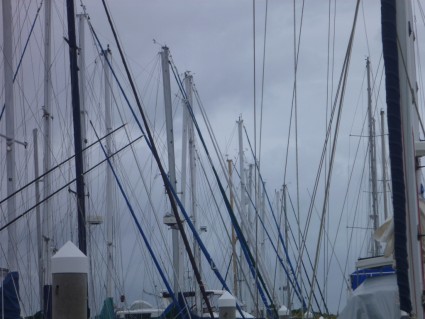
Middle of the night, I can't sleep. I sneak out of the forward cabin and pull the narrow door closed behind me, just tight enough so the slightly warped wood catches the frame and holds it closed, but not enough to make the loud "click" sound that might disturb Allan as he sleeps. The floor creaks as I tiptoe across it, mainly because it's not a normal floor: it's a series of compartments, with storage, or a motor, or a bilge beneath.
Standing on the companionway stairs, looking out the hatch at the boats in the marina around us, the breeze catches my arms as they rest on the cabin top. The perfect temperature tonight -- cool, warm, a little damp from the rain, fresh. The lights along the docks cast a warm, even glow on the boats, catching glints of stainless and reflecting on their round hulls as they rest in the night. Although it's peaceful and beautiful, it's not quiet: halyards bang rhythmically against wood and metal masts as the breeze lifts and falls, lines creak and groan as bows pull away from the docks, reach their limit, then ease back, pressing on the rubber fenders with a soft squeak. One of my favorite sounds is the wind as it howls softly, moving through and around the ghostly forest of masts, thick and complex with all the paraphernalia that make a sailboat: the horizontal spreaders reaching like arms outstretched; the shrouds that hold the mast upright from the sides; the fore and aft stays that keep it from crashing down on the bow or the stern; the radar domes; reflectors; GPS and radio antennas; the little metal mast steps that some boats have to aid in climbing to the top; the flags. Flags of the host nation in which the boat currently resides, flags from yacht clubs, sailing organizations, homelands -- all flapping gently, sometimes banging annoyingly on the nearby shroud if the gap is too small. The lapping sound of water comes and goes as the surface of the sea is stirred up by wind or current.
This is what I've come to love, among so many other things I love about living on the boat. As I gaze out at the boats packed into this marina, I feel a great affinity for each one, for the stories they tell. I feel alone in the night, but surrounded by friends.
Down in the cabin, I turn on the light over the table and settle into my favorite nook while my tiny EeePC warms up. I pour myself a glass of rice milk and reach for the lid to the "snack box" -- the floor storage beneath the table where all the goodies and things that are generally not very good for you are kept -- and am unable to avoid the loud creak that accompanies it's movement. I find the cinnamon crisps, carefully wrapped and rubber-banded but slightly stale nonetheless. Something you get used to on boats, stale crackers. Not too bad, they softly crumble and the cinnamon sugar on top is still crispy.
Rain comes and goes all night around here this time of year, or this year anyhow. All the locals tell us it's been a very uncharacteristic spring -- cool and rainy, whereas usually by now it's "hot as blazes." All we know is it's absolutely perfect here, we couldn't describe a more ideal climate. But back to the rain, and another reason I love living on the boat: the hatch that sits directly over our bed. An arms-reach away without even having to sit up, we can lie underneath and catch the night breeze through the cracked lid. When the rain comes, it's usually preceded by a gust, which wakes up a certain part of our subconscious brains. Then the sprinkles start falling on our arms or shoulders, lightly, and one of us will reach up and crank down the latch. A little while later, when the mesmerizing sound of rain falling on the fiberglass cabintop subsides, we reach up and release the hatch, shoving it open 6 inches or a foot, the light from the moon, or the dock, or the nearby parking lot streaming in.
Although things aren't always easy to get at, nothing is very far away on a boat. When I'm done with my milk and crackers, I just reach over the couch and set the glass and plate on the galley counter. If I forget a sweater as we're leaving, it's 4 steps back to the closet, not a major excursion like in the house. And lately, with most of our stuff packed away in boxes and resting in the corner of a nearby storeroom awaiting shipment back home, life feels more spacious and easy on board. We really do wonder why we had so much stuff. I'm down to the bare minimums now, and it's feels somehow freeing, wide-open, like a deep breath. My closet isn't crammed so tight I can't get things out. I can push the clothes aside and easily access the shelf behind where I like to keep my bike bag, whereas before I had to pull all the clothes out of the closet and lay them on the bed to get at that space. I can find things, what few things there are to find.
Today we had a lot of errands to run, and are grateful for our crummy, rusted, stiff old folding bikes. Armed with backpacks and a bottle of water, we set off for Redcliffe. A stop at the clothing store for a peacock-print dress that caught my eye and wasn't too much money, down along Anzac to the water maker store for some o-rings, a few blocks farther down for a quick sushi lunch before we catch a matinée at the theatre. Afterwards, we find the bikes wet from a rain storm that passed overhead while we were lost in the movie plot. We wipe them off with the tails of our shirts and soggy Kleenex, and head off to the bank, where I change the remaining Polynesian franc's from New Caledonia into local currency. Then, up the street to the glass place, where we've had a small mirror made for the aft bathroom. A quick stop next door at the marine store, which has a consignment section and a few of our things which we hope to sell. Then down the wide 4-lane highway back toward the marina, the air cool from the rain, the sun mercifully shielded by the clouds. We make a stop for cold drinks at the Rugby Club, then decide to verify the rumor that kangaroos come to eat the green grass in the schoolyard in the afternoons. A left turn down Klingner toward the school, but no 'roos, so we take a detour up the street to an arroyo with a grassy field nearby. Gazing across toward the trees, we see them: two small kangaroos -- smaller than I expected -- alert at our approach and sitting upright like big rabbits, their ears twitching and their eyes locked on us. We get surprisingly close before they hop a few feet away, nonplussed, and bend over to eat the wet grass. I try to get a picture of them with my crummy phone camera, and Allan spots a koala asleep in the trees above. All of this is happening just behind a housing area, near 2 busy highways and miles from open space. Finally the mosquitoes from the stagnant water nearby drive us off, and we pedal through the red mud toward home.
We ride back to the marina with satisfied grins on our faces and lock up the bikes in the bike racks, crowded with rusty and abandoned bicycles with flat tires. We're stiff from the hard seats of these old bikes, but there's something very satisfying about relying on them -- we got so much done today, saw so much more than we would have in a car, had a great time together, and got some exercise to boot.
All of this is not part of our normal lives. The creaking boats, the howling wind in the masts, the rain through the hatch over our bed, riding bikes all over town because we don't have a car, the bus is too expensive and the schedule is annoying. We solve problems differently. The rhythm of our lives is different on this boat, and I will miss it terribly. Like all the changes that I've felt in me during this last year, I wonder if I can hang onto this. Or will I revert to my car-dependent self, with my huge bed and the window waaaayyy over there on the other side of the room, my utensil drawer stuffed with every possible peeler and chopper?
I hope not. I read recently that most sailors can return to their old lives after cruising if they get home between one and two years after setting out. But after two full years of cruising the oceans of this amazing planet, of living by your wits, being scared sometimes, and uncomfortable lots of times, and happy even when you don't know it most of the time, of cooking unfamiliar foods in compromised situations, climbing in rubber dinghies with casseroles precariously perched on the seat for a jaunt to a nearby potluck on a friends' boat, affecting repairs in rough seas with minimal tools -- after 104 weeks of this crazy life, it's very difficult to return to the "normal" world. So it would seem we're in the window of being able to reacclimate, and I can't help but wonder if that's a good thing ...
Standing on the companionway stairs, looking out the hatch at the boats in the marina around us, the breeze catches my arms as they rest on the cabin top. The perfect temperature tonight -- cool, warm, a little damp from the rain, fresh. The lights along the docks cast a warm, even glow on the boats, catching glints of stainless and reflecting on their round hulls as they rest in the night. Although it's peaceful and beautiful, it's not quiet: halyards bang rhythmically against wood and metal masts as the breeze lifts and falls, lines creak and groan as bows pull away from the docks, reach their limit, then ease back, pressing on the rubber fenders with a soft squeak. One of my favorite sounds is the wind as it howls softly, moving through and around the ghostly forest of masts, thick and complex with all the paraphernalia that make a sailboat: the horizontal spreaders reaching like arms outstretched; the shrouds that hold the mast upright from the sides; the fore and aft stays that keep it from crashing down on the bow or the stern; the radar domes; reflectors; GPS and radio antennas; the little metal mast steps that some boats have to aid in climbing to the top; the flags. Flags of the host nation in which the boat currently resides, flags from yacht clubs, sailing organizations, homelands -- all flapping gently, sometimes banging annoyingly on the nearby shroud if the gap is too small. The lapping sound of water comes and goes as the surface of the sea is stirred up by wind or current.
This is what I've come to love, among so many other things I love about living on the boat. As I gaze out at the boats packed into this marina, I feel a great affinity for each one, for the stories they tell. I feel alone in the night, but surrounded by friends.
Down in the cabin, I turn on the light over the table and settle into my favorite nook while my tiny EeePC warms up. I pour myself a glass of rice milk and reach for the lid to the "snack box" -- the floor storage beneath the table where all the goodies and things that are generally not very good for you are kept -- and am unable to avoid the loud creak that accompanies it's movement. I find the cinnamon crisps, carefully wrapped and rubber-banded but slightly stale nonetheless. Something you get used to on boats, stale crackers. Not too bad, they softly crumble and the cinnamon sugar on top is still crispy.
Rain comes and goes all night around here this time of year, or this year anyhow. All the locals tell us it's been a very uncharacteristic spring -- cool and rainy, whereas usually by now it's "hot as blazes." All we know is it's absolutely perfect here, we couldn't describe a more ideal climate. But back to the rain, and another reason I love living on the boat: the hatch that sits directly over our bed. An arms-reach away without even having to sit up, we can lie underneath and catch the night breeze through the cracked lid. When the rain comes, it's usually preceded by a gust, which wakes up a certain part of our subconscious brains. Then the sprinkles start falling on our arms or shoulders, lightly, and one of us will reach up and crank down the latch. A little while later, when the mesmerizing sound of rain falling on the fiberglass cabintop subsides, we reach up and release the hatch, shoving it open 6 inches or a foot, the light from the moon, or the dock, or the nearby parking lot streaming in.
Although things aren't always easy to get at, nothing is very far away on a boat. When I'm done with my milk and crackers, I just reach over the couch and set the glass and plate on the galley counter. If I forget a sweater as we're leaving, it's 4 steps back to the closet, not a major excursion like in the house. And lately, with most of our stuff packed away in boxes and resting in the corner of a nearby storeroom awaiting shipment back home, life feels more spacious and easy on board. We really do wonder why we had so much stuff. I'm down to the bare minimums now, and it's feels somehow freeing, wide-open, like a deep breath. My closet isn't crammed so tight I can't get things out. I can push the clothes aside and easily access the shelf behind where I like to keep my bike bag, whereas before I had to pull all the clothes out of the closet and lay them on the bed to get at that space. I can find things, what few things there are to find.
Today we had a lot of errands to run, and are grateful for our crummy, rusted, stiff old folding bikes. Armed with backpacks and a bottle of water, we set off for Redcliffe. A stop at the clothing store for a peacock-print dress that caught my eye and wasn't too much money, down along Anzac to the water maker store for some o-rings, a few blocks farther down for a quick sushi lunch before we catch a matinée at the theatre. Afterwards, we find the bikes wet from a rain storm that passed overhead while we were lost in the movie plot. We wipe them off with the tails of our shirts and soggy Kleenex, and head off to the bank, where I change the remaining Polynesian franc's from New Caledonia into local currency. Then, up the street to the glass place, where we've had a small mirror made for the aft bathroom. A quick stop next door at the marine store, which has a consignment section and a few of our things which we hope to sell. Then down the wide 4-lane highway back toward the marina, the air cool from the rain, the sun mercifully shielded by the clouds. We make a stop for cold drinks at the Rugby Club, then decide to verify the rumor that kangaroos come to eat the green grass in the schoolyard in the afternoons. A left turn down Klingner toward the school, but no 'roos, so we take a detour up the street to an arroyo with a grassy field nearby. Gazing across toward the trees, we see them: two small kangaroos -- smaller than I expected -- alert at our approach and sitting upright like big rabbits, their ears twitching and their eyes locked on us. We get surprisingly close before they hop a few feet away, nonplussed, and bend over to eat the wet grass. I try to get a picture of them with my crummy phone camera, and Allan spots a koala asleep in the trees above. All of this is happening just behind a housing area, near 2 busy highways and miles from open space. Finally the mosquitoes from the stagnant water nearby drive us off, and we pedal through the red mud toward home.
We ride back to the marina with satisfied grins on our faces and lock up the bikes in the bike racks, crowded with rusty and abandoned bicycles with flat tires. We're stiff from the hard seats of these old bikes, but there's something very satisfying about relying on them -- we got so much done today, saw so much more than we would have in a car, had a great time together, and got some exercise to boot.
All of this is not part of our normal lives. The creaking boats, the howling wind in the masts, the rain through the hatch over our bed, riding bikes all over town because we don't have a car, the bus is too expensive and the schedule is annoying. We solve problems differently. The rhythm of our lives is different on this boat, and I will miss it terribly. Like all the changes that I've felt in me during this last year, I wonder if I can hang onto this. Or will I revert to my car-dependent self, with my huge bed and the window waaaayyy over there on the other side of the room, my utensil drawer stuffed with every possible peeler and chopper?
I hope not. I read recently that most sailors can return to their old lives after cruising if they get home between one and two years after setting out. But after two full years of cruising the oceans of this amazing planet, of living by your wits, being scared sometimes, and uncomfortable lots of times, and happy even when you don't know it most of the time, of cooking unfamiliar foods in compromised situations, climbing in rubber dinghies with casseroles precariously perched on the seat for a jaunt to a nearby potluck on a friends' boat, affecting repairs in rough seas with minimal tools -- after 104 weeks of this crazy life, it's very difficult to return to the "normal" world. So it would seem we're in the window of being able to reacclimate, and I can't help but wonder if that's a good thing ...
Comments
| Vessel Name: | Fly Aweigh II |
| Vessel Make/Model: | Seawind 1160 Deluxe |
| Hailing Port: | Channel Islands, California |
| Crew: | Allan and Alison Gabel |
| About: |
Fly Aweigh II's Photos - Main
 |
From La Paz to Puerto Escondido in the Sea of Cortez (Gulf of California)
17 Photos
Created 27 April 2022
|
 |
The last, last minute things and our final departure for San Diego.
4 Photos
Created 1 December 2021
|
 |
Stuff we're doing in the prepping-to-go-sailing phase of our lives.
5 Photos
Created 20 November 2021
|
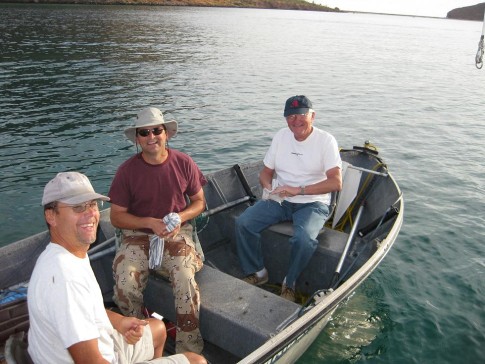 |
Visit with Grant & Phyllis Gabel; Fly Aweigh's Christmas decorations
13 Photos
Created 12 December 2009
|
The Gabel's on Fly Aweigh II

Who: Allan and Alison Gabel
Port: Channel Islands, California
